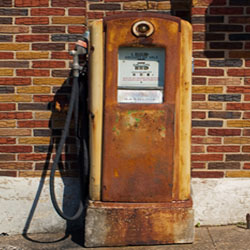2020 Recent Federal Decision Serves as a Reminder of the Importance of 180-Day Rule for Phase I ESAs.
 Past the Expiration Date: Recent Federal Decision Serves as a Reminder of
Past the Expiration Date: Recent Federal Decision Serves as a Reminder of
the Importance of 180-Day Rule for Phase I ESAs.
By Michael P. Carvalho, Esq., Managing Partner, Carvalho & Associates, P.C.
Most real estate professionals understand the practical value of completing pre-acquisition environmental due diligence in connection with the acquisition of real property. Assessing the environmental condition of properties prior to purchase or lease is now commonplace in the industry. The ASTM E-1527 Standard Practice for Environmental Site Assessments: Phase I Site Assessment Process (“ASTM Phase I”) has long been the “bible” for conducting such pre-acquisition inquires into the history, regulatory agency involvement and existing conditions at a site to assess the potential for Recognized Environmental Conditions (“RECs”). However, the legal significance of properly completing such studies is often overlooked. That is, until an Indiana federal judge in the matter of Von Duprin LLC v. Moran Electric Services (S.D. Ind., March 30, 2020). The court in Von Duprin held that the defendants were not bona fide prospective purchasers within the meaning of the statute because they failed to complete their Phase I ESAs within the 180 days of acquisition mandated by the ASTM Standard Practice.
A CERCLA Legal Primer
Superfund is one tough statute! The federal Comprehensive Environmental Response, Compensation and Liability Act (CERCLA) of 1980 was passed by Congress to create a means to address the responsibility for the cleanup of the nation’s worst environmental contamination sites. Pursuant CERCLA, liability is strict, joint, several and retroactive. Potentially responsible parties (PRPs) include owners, operators, transporters and/or generators of hazardous substances that come to be located at facilities. Congress include a subsequent, limited defense to liability known as the “innocent purchaser” defense where an innocent landowner, contiguous property owner or bona fide prospective purchaser can limit CERCLA’s onerous liability scheme by conducting “all appropriate inquiries into the previous ownership and uses of the property consistent with good commercial and customary practice at the time of acquisition. Under the ASTM Standard, a person may qualify for bona fide prospective purchaser status if they complete “all appropriate inquiries” on or before the purchase date. Significantly, knowledge of contamination resulting from all appropriate inquires would not necessarily preclude CERLCA liability.
ASTM’s Continued Viability Requirement: The 180-Day Rule
Because Phase I ESAs are best thought of as a “Snapshot in Time” of a property’s environmental condition, ASTM quickly recognized that they needed to come with a shelf life. ASTM Sec. 4.6 provides that interviews with owners, operators and occupants, searches for recorded environmental cleanup liens, review of federal, triable, state and local government records, visual inspections of the property and adjoining properties, and declaration by an Environmental Professional responsible for the assessment or update must be completed within 180 days of the date of purchase or the date of the intended transaction.
2015 Litigation in the Age of eDiscovery
Carvalho & Associates, P.C. Attorney Michael Carvalho, Esq. and eDiscovery Project Manager Ann Francis recently published an article “Litigation in the Age of eDiscovery” in the International Council of Shopping Centers’ Retail Law Strategist journal. The article provides both an excellent overview and practical considerations for managing electronically stored information (“ESI”) before and after litigation occurs. Please contact Michael P. Carvalho, Esq. for further information at (855) 273-1920.
METRO ATLANTA OFFICE
707 Whitlock Ave, SW | Suite E-19 | Marietta, GA 30064
BOSTON COASTAL OFFICE
Post Office Box 1584 | Manchester, MA 01944
Legal Notice | Contact Us | Privacy Policy
© 2024 All Rights Reserved on original work.
